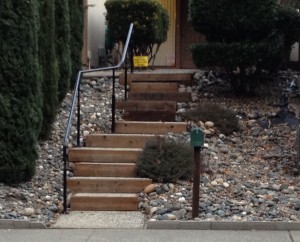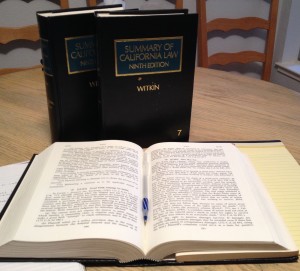Ownership, Possession, and Control: the Keys to Premises Liability
Many people think premises liability is only a concern for land “owners” and landlords. In reality, the legal duties which give rise to premises liability may occur when a person has ownership, possession, or control of real property – meaning that it’s not only landlords and owners of land who may be at risk.
The law describes the requirements in the disjunctive, meaning that any one of them–ownership, possession, OR control–may be sufficient to create the duty (and, in appropriate circumstances, the liability for injuries occurring on the property).
PRIOR OWNERS ARE NOT NORMALLY LIABLE FOR INJURIES OCCURRING AFTER TRANSFER OF OWNERSHIP OR CONTROL OF PROPERTY
Generally, the law requires current ownership, possession, or control. Prior owners of land are not normally held liable for injuries which occur after transfer of ownership or control of the property. However, there are exceptions.
A prior owner’s negligence may not be enough to create a lasting liability, even if that negligence creates a dangerous or hazardous condition on property prior to the date of the sale or transfer of control. If the former owner conceals the defective condition, however, or takes steps to prevent the buyer or new possessor of the land from finding out about dangerous conditions, liability may attach to the former owner (as well as the new one).
CONTROL IS OFTEN CONSIDERED THE MOST IMPORTANT ELEMENT WHEN DETERMINING LIABILITY
California courts have held that control of property is the most important element when determining whether or not the duty (which gives rise to premises liability) exists. Owners who rent or lease their property, but do not control the premises themselves, may have defenses to premises liability–defenses which may not be available to the tenant in control. However, landlords should not rely upon their lack of control, because ownership alone may be enough to create a duty (and liability) in some cases.
HOMEOWNERS’ ASSOCIATIONS SHOULD ALSO BE AWARE OF PREMISES LIABILITY ISSUES
Courts have also held that homeowners’ associations “control” the common areas in real estate developments, meaning that homeowners, guests, and workers may be able to sue the HOA if injuries occur in the common areas – especially where those injuries relate to lack of maintenance or hazardous conditions arising from situations the HOA (or a reasonable landowner) could or should have prevented. Since HOA liability ultimately costs the resident homeowners money, people who own homes within developments governed by Homeowners’ Associations should take steps to ensure the HOA maintains the common areas properly and removes or fixes hazards before injuries can occur.
If you own, rent, control, or possess real property, you may have a duty to maintain, repair, and address certain issues to prevent (or lessen the likelihood of) injuries to people who enter the property. Ignorance of the law is not a defense, and even well-intentioned homeowners may suffer serious legal and financial consequences if the duty is ignored. Consult an attorney or property specialist to learn about your duties and obligations, and make sure you comply with your legal duties to keep your property safe and well maintained.
***
DISCLAIMER: This article is intended for informational purposes only, and does not constitute legal advice or create an attorney-client relationship. Premises liability is a complex legal topic, and no single article can provide complete or comprehensive coverage or information about this or any other legal topic or issue. Your personal liability may differ, based on your individual facts and circumstances. If you believe you have a legal claim or issue, or wish to know more about your individual rights, consult an experienced attorney without delay.
















